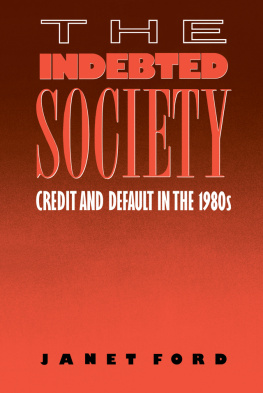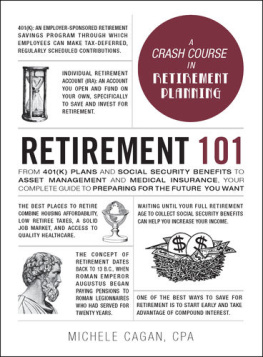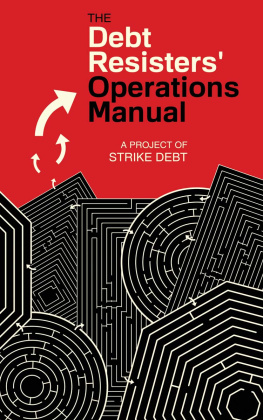First published in 1988 by
Routledge
2 Park Square, Milton Park, Abingdon, Oxon, OX14 4RN
Transferred to Digital Printing 2004
Published in the USA by
Routledge
in association with Routledge, Chapman and Hall, Inc.
29 West 35th Street, New York NY 10001
Janet Ford 1988
Phototypeset in 10/11pt Linotron Sabon
by Input Typesetting Ltd, London
All rights reserved. No part of this book may be reprinted or reproduced or utilized in any form or by any electronic, mechanical, or other means, now known or hereafter invented, including photocopying and recording, or in any information storage or retrieval system, without permission in writing from the publishers.
Library of Congress Cataloging in Publication Data
Ford, Janet, 1944
The indebted society: credit and default in the 1980s/Janet Ford.
p. cm.
Bibliography: p.
Includes index.
1. Consumer creditGreat Britain. 2. DebtGreat Britain. 3. Default (Finance)Great Britain. I. Title.
HG3756.G7F67 1988
332.7'0941dc19 884267
British Library Cataloguing in Publication Data
Ford Janet, 1944
The indebted society: credit and default in the 1980s.
1. Great Britain. Consumers. Debts. Non-payment
I. Title
332.024'02
ISBN 0-415-00757-7
This book is about debt. More specifically, it is about documenting and understanding how debt occurs, how it is experienced and managed and the role creditors play in the debt management process
With a few notable exceptions these questions have received relatively little attention within the social sciences yet they are important questions for several reasons. At one level they are pertinent because debt affects a large and growing number of people. Exactly how many borrowers are in default is unknown, but over two million individuals were sued for debts in the county courts in 1986, and in excess of 10 per cent of households may have undertaken commitments that they are now not paying. But more than the numbers, the consequences of default make the issue an important one. For example, families lose homes, they may be left without heat and light, many experience acute anxiety, and there is a close link reported between debt and relationship breakdown. All these consequences can then generate their own demands and carry consequences for social divisions and disadvantage.
Questions about default, however, are also questions about the development, organisation, and expansion of a credit society and the impact of these societal processes and relationships on individuals and households. Debt cannot be understood apart from credit and the structures that support a credit society as it is these that set the stage for default. In the nineteenth century the traditional role of credit was in relation to the management of a low, inadequate and often irregular income and was necessitated by the exploitative and unregulated nature of the labour market and the absence of state support for those in need. Credit in relation to poverty persists today, a means to bridge income and expenditure cycles in the face of low pay or inadequate levels of benefit. The major expansion of credit from the mid nineteeth century has, however, been predicated upon rising stable incomes, the bureaucratisation of the world of work, and the emergence of attitudes supportive of credit commitment such that the use of credit has posed less and less of a problem to the emerging affluent in society.
Credit was initially an important but supporting adjunct to the marketing and sale of goods. Increasingly, credit emerged as an independent avenue of profit, separately organised and marketed, and the credit environment has become an ever more competitive and crowded one. These developments have been reinforced by the state's increasing support for and reliance upon policies that necessitate credit availability (such as home ownership), and their commitment to financial deregulation.
For a substantial part of the twentieth century, as far as most borrowers are concerned, credit has been offered and held in an environment of certainty and for many borrowers credit use has not been problematic. During the late 1970s and 1980s this situation has been challenged by social, economic, and political change that has undermined or removed the ability of many households to pay what they owe; unemployment, relationship breakdown, the falling value of many welfare benefits are amongst a wide range of processes that have challenged credit arrangements most usually entered in good faith. The tensions between an expanding (and often persuasive if not aggressive) credit market and an increasingly uncertain and disrupting social and economic environment are such that default has risen markedly.
The major focus of this book is a concern with the way in which some individuals and households are caught within this web of tensions and conflicts in such a way that they can no longer maintain their credit commitments. This issue was given an empirical focus through a consideration of the question, how does default arise, what range of factors account for the transition from paying to not paying, and what was the response of borrowers to defaulting? Further, how do defaulters manage default within the household? What strategies and tactics do they adopt and what resources are available to them?
The opportunity to examine these questions was provided in 1984 when the Economic and Social Research Council undertook to support a project concerned with an examination of the processes associated with the initial development of default and its early management within the household (grant number D00232106). Specifically, the project was concerned with borrowers in default on their building society mortgages. The support of the ESRC is gratefully acknowledged. As is outlined in greater detail in, the pattern of interest with regard to debt has taken a particular form such that the questions outlined above had not received much attention up to that point. The research aimed to complement and extend the existing pattern of research and centrally to focus upon an account and understanding of the borrowers' perspective on the default process. Much of this book is taken up with reporting the results of the study undertaken in order to provide a more developed understanding of the routes into debt, the factors that structure the responses to default, and its subsequent management.
The book is divided into two parts. Part I is concerned to draw together some of the available material and themes that relate to credit and debt in general. This then provides the context and identifies a number of important returns to a more general focus on credit and debt.
The research project was conducted over a fifteen-month period. During that time Laurence Took acted as the research officer and assumed responsibility for a substantial part of the data collection. The preparation and care that he demonstrated with regard to the interviewing programme around a very sensitive issue played a large part in ensuring the successful completion of the project. Kathy Wray was involved for a short time and her help is acknowledged. The methodology proposed for the project (see) could not have been implemented without the help of a number of building societies and the assistance of several of their staff is gratefully acknowledged. Many other friends and colleagues have helped through discussion, advice, support, and preparation of the manuscript. In particular I wish to thank Ruth Sinclair, Jill Vincent, Teresa Keil, and Gwen Moon.









